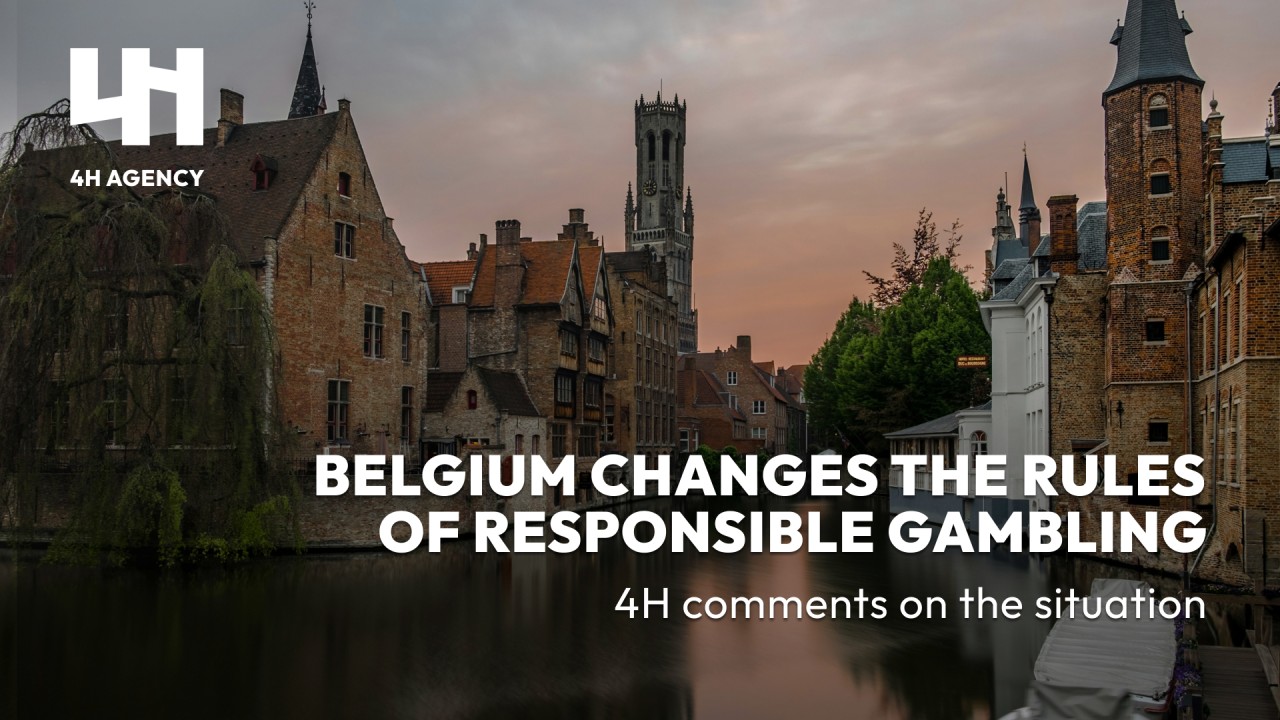The new gambling law in Belgium has tightened gambling regulations with a focus on responsible gambling. The law introduces the following changes:
• The minimum age for opening gambling accounts is 21 years;
• Operators are prohibited from offering bonuses to players; and
• Gambling advertising is prohibited.
Ivan Kurochkin, Partner and Head of Eastern Europe Desk at 4H Agency, comments on the situation:
"A new law in Belgium aims to tighten responsible gambling. Such an initiative has different implications. The regulator wants to provide a safe space for players and decrease the level of youth involvement.
From our point of view, the changes may also affect operators. On the one hand, operators may look for new markets where the level of restrictions is not so strong (e.g. in other European countries), on the other hand, such restrictions may increase the level of offshore gambling. As a result, Belgium will have less revenue from the gambling market.
In Europe, the average age for opening gambling accounts is 18 (UK, Sweden, Denmark, etc.), in contrast to the majority of United States regulatory practices. Numerous U.S. states mandate that prospective gamblers must be at least 21 years old before they can make their initial online or physical wagers.
In some countries, bonuses can be categorized as a form of advertising (such as in The Netherlands and Denmark). This understanding of bonuses serves as the basis for reducing the popularization of gambling among the population. As a result, the operator is limited in its ability to promote the brand in the market. The prohibition of offering bonuses to players may be motivated by encouraging operators to work illegally. This, in turn, leads to the impacts described above (less profit for the country, increased offshore gambling, etc.).
Partial restrictions on advertising, such as those targeting children, are widespread. Moreover, several European countries, including Poland and Moldova, have implemented complete bans on gambling advertisements.
Belgium is not the sole European Union nation addressing gambling reform; the Italian Government has also unveiled significant changes to existing gambling laws. Similar news gives grounds to believe in further tightening of regulations gambling industry on the European continent".
• The minimum age for opening gambling accounts is 21 years;
• Operators are prohibited from offering bonuses to players; and
• Gambling advertising is prohibited.
Ivan Kurochkin, Partner and Head of Eastern Europe Desk at 4H Agency, comments on the situation:
"A new law in Belgium aims to tighten responsible gambling. Such an initiative has different implications. The regulator wants to provide a safe space for players and decrease the level of youth involvement.
From our point of view, the changes may also affect operators. On the one hand, operators may look for new markets where the level of restrictions is not so strong (e.g. in other European countries), on the other hand, such restrictions may increase the level of offshore gambling. As a result, Belgium will have less revenue from the gambling market.
In Europe, the average age for opening gambling accounts is 18 (UK, Sweden, Denmark, etc.), in contrast to the majority of United States regulatory practices. Numerous U.S. states mandate that prospective gamblers must be at least 21 years old before they can make their initial online or physical wagers.
In some countries, bonuses can be categorized as a form of advertising (such as in The Netherlands and Denmark). This understanding of bonuses serves as the basis for reducing the popularization of gambling among the population. As a result, the operator is limited in its ability to promote the brand in the market. The prohibition of offering bonuses to players may be motivated by encouraging operators to work illegally. This, in turn, leads to the impacts described above (less profit for the country, increased offshore gambling, etc.).
Partial restrictions on advertising, such as those targeting children, are widespread. Moreover, several European countries, including Poland and Moldova, have implemented complete bans on gambling advertisements.
Belgium is not the sole European Union nation addressing gambling reform; the Italian Government has also unveiled significant changes to existing gambling laws. Similar news gives grounds to believe in further tightening of regulations gambling industry on the European continent".



